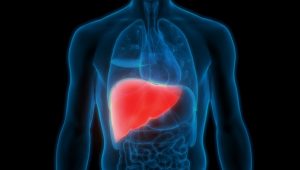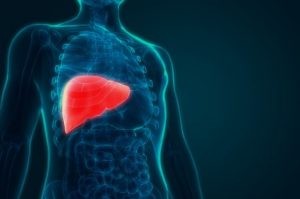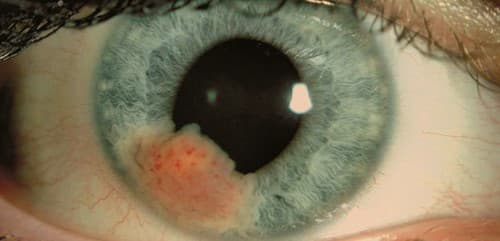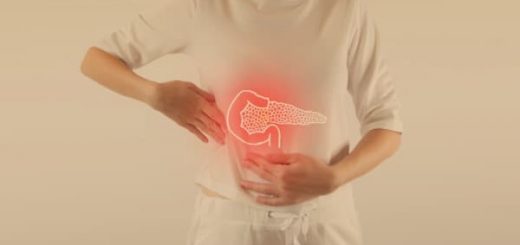Penyakit liver
- Fungsi Hati
- Fungsi hati meliputi:
- Apa saja Gejala Umumnya
- Gejala Liver Ringan
- Penyebab penyakit hati antara lain:
- Infeksi
- Signs of severe liver disease :
- What are the common liver problems
- Transmission of liver disease
- Causes of swollen liver
- Fatty liver disease:
- Autoimmune conditions
- Genetic conditions
- Cancer
- Cirrhosis
- Liver failure
- Drug liver at the pharmacy
- Am I at risk
- How is liver disease diagnosed
- How they are treated
- What are the prospects?
- Reference:
Hati Anda adalah organ penting yang melakukan ratusan tugas yang berkaitan dengan metabolisme, penyimpanan energi, dan detoksifikasi limbah. Ini membantu Anda mencerna makanan, mengubahnya menjadi energi, dan menyimpan energi sampai Anda membutuhkannya. Ini juga membantu menyaring zat beracun dari aliran darah Anda.
Penyakit hati adalah istilah umum untuk merujuk pada kondisi apa pun yang memengaruhi hati Anda. Kondisi ini dapat berkembang karena berbagai alasan, tetapi semuanya dapat merusak hati dan memengaruhi fungsinya. Penyakit hati tidak selalu menimbulkan tanda dan gejala yang jelas.
Penyakit hati (liver) adalah gangguan pada fungsi dan fisiologi hati. Hati (liver) berada tepat di bawah tulang rusuk di sisi kanan perut Anda. Organ tersebut terdiri dari dua bagian yaitu lobus kiri dan lobus kanan. Penyakit liver sendiri bisa disebabkan oleh banyak hal.
Penyakit hati herediter (genetik). Masalah hati juga bisa disebabkan oleh berbagai faktor yang merusak hati, seperti virus, penggunaan alkohol, dan obesitas.

Fungsi Hati
Hati berfungsi sebagai bagian dari sistem pencernaan, peran hati meliputi detoksifikasi, sintesis protein, dan produksi bahan kimia yang membantu mencerna makanan.
Fungsi hati meliputi:
- Produksi empedu : Empedu membantu usus kecil memecah dan menyerap lemak, kolesterol, dan beberapa vitamin. Empedu terdiri dari garam empedu, kolesterol, bilirubin, elektrolit, dan air.
Menyerap dan memetabolisme bilirubin: Bilirubin dibentuk oleh pemecahan hemoglobin. Besi yang dilepaskan dari hemoglobin disimpan di hati atau sumsum tulang dan digunakan untuk membuat sel darah generasi berikutnya.
Mendukung pembekuan darah: Vitamin K diperlukan untuk pembentukan koagulan tertentu yang membantu pembekuan darah. Empedu sangat penting untuk penyerapan vitamin K dan dibuat di hati. Jika hati tidak menghasilkan cukup empedu, faktor pembekuan tidak dapat diproduksi.
Metabolisme lemak : Empedu memecah lemak dan membuatnya lebih mudah dicerna.
Metabolisme karbohidrat : Karbohidrat disimpan di hati, di mana mereka dipecah menjadi glukosa dan diserap ke dalam aliran darah untuk mempertahankan kadar glukosa normal. Mereka disimpan sebagai glikogen dan dilepaskan kapan pun dibutuhkan energi cepat.
Penyimpanan vitamin dan mineral : Hati menyimpan vitamin A, D, E, K, dan B12. Ini menyimpan sejumlah besar vitamin yang disimpan ini. Dalam beberapa kasus, vitamin selama beberapa tahun disimpan sebagai cadangan. Hati menyimpan zat besi dari hemoglobin dalam bentuk ferritin, siap untuk membuat sel darah merah baru. Hati juga menyimpan dan melepaskan tembaga.
Membantu metabolisme protein : Empedu membantu memecah protein untuk pencernaan.
Menyaring darah: Hati menyaring dan menghilangkan senyawa dari tubuh, termasuk hormon, seperti estrogen dan aldosteron, dan senyawa dari luar tubuh, termasuk alkohol dan obat-obatan lainnya.
Fungsi imunologi : Hati merupakan bagian dari sistem fagosit mononuklear. Ini mengandung sejumlah besar sel Kupffer yang terlibat dalam aktivitas kekebalan. Sel-sel ini menghancurkan agen penyebab penyakit yang mungkin masuk ke hati melalui usus.
Produksi albumin: Albumin adalah protein yang paling umum dalam serum darah. Ini mengangkut asam lemak dan hormon steroid untuk membantu menjaga tekanan yang benar dan mencegah bocornya pembuluh darah.
Sintesis angiotensinogen: Hormon ini meningkatkan tekanan darah dengan menyempitkan pembuluh darah saat diwaspadai oleh produksi enzim yang disebut renin di ginjal.
Penurunan fungsi hati umumnya terjadi secara bertahap. Biasanya fungsi hati akan mulai menurun bila sel hati mengalami kerusakan 75%.
More about this source textSource text required for additional translation information

Apa saja Gejala Umumnya
Gejala penyakit hati bervariasi, tergantung penyebab yang mendasarinya. Namun, ada beberapa gejala umum penyakit hati yang mungkin mengindikasikan beberapa penyakit hati.
Ini termasuk:
- Kulit dan mata kuning, yang dikenal sebagai penyakit kuning.
- Urin gelap
- Tinja berwarna pucat, berdarah, atau hitam
- Pergelangan kaki atau perut bengkak
- Mual
- Muntah
- Nafsu makan menurun
- Kelelahan terus menerus
- Kulit yang gatal
- Mudah memar
Sehingga dapat diketahui secara langsung gejala penyakit liver yang terjadi pada seseorang. Biasanya, jika Anda mulai merasakan gejala penyakit liver, segera konsultasikan ke dokter.
Gejala Liver Ringan
Ketika Anda merasakan gejala hati yang ringan juga harus diwaspadai agar tidak semakin parah. Hati merupakan organ yang berperan sangat penting dalam metabolisme tubuh. Hati juga berfungsi untuk menyimpan energi dan membantu pencernaan makanan.
Ada banyak faktor yang dapat mempengaruhi kerja dan fungsi hati. Gejala hati ringan biasanya muncul saat hati mulai berfungsi.
Penyebab penyakit hati antara lain:
Infeksi
Parasit dan virus dapat menginfeksi hati, menyebabkan peradangan yang mengurangi fungsi hati.
Gangguan sistem kekebalan tubuh
Penyakit di mana sistem kekebalan Anda menyerang bagian tubuh tertentu (autoimun) dapat memengaruhi hati Anda.
Genetics
An abnormal gene inherited from one or both of your parents can cause various substances to build up in your liver, resulting in liver damage.
There are several contributing factors to the causes of liver disease, so you should have frequent checkups.
Signs of severe liver disease :
Long-term (chronic) liver disease . The damage to your liver increases over time.
The liver is the largest internal organ of your body. It lies under your ribs on the right side of your stomach. When you have advanced liver disease , scar tissue slows down blood flow through the liver. Over time, the heart can’t work as it should.
In severe cases, the liver becomes so damaged that it stops working. This is called liver failure.

What are the common liver problems
Many conditions can affect your liver. Here are some of the main ones.
Hepatitis
Hepatitis is a viral infection of your liver. This causes inflammation and damage to the liver, making it difficult for your liver to function properly.
All types of hepatitis are contagious, but you can reduce your risk by getting vaccinated for types A and B or taking other preventive steps, including having safe sex and not sharing needles.
There are five types of hepatitis:
- Hepatitis A is usually spread through contact with contaminated food or water. Symptoms may go away without treatment, but recovery can take several weeks.
- Hepatitis B can be acute (short term) or chronic (long term). It spreads through body fluids, such as blood or semen. Although hepatitis B is treatable, there is no cure for it. Early treatment is key to avoiding complications, so it is best to get regular checkups if you are at risk.
- Hepatitis C can also be acute or chronic. It is often spread by contact with blood from someone with hepatitis C. Although it often causes no symptoms in the early stages, it can cause permanent liver damage in later stages.
- Hepatitis D is a serious form of hepatitis that only develops in people with hepatitis B. Hepatitis cannot be transmitted by itself. It can also be acute or chronic.
- Hepatitis E is usually caused by drinking contaminated water. In general, it heals on its own within a few weeks without any lasting complications.
Transmission of liver disease
Transmission of liver disease can be through several media, including:
- Non-disposable syringes
- Razor
- Tattoo needle
- Tooth brush
- Items contaminated with the hepatitis B virus
- As a result of having sex
Mode of transmission due to sexual intercourse includes people with blood disorders such as hemophilia, leukemia or undergoing kidney dialysis in groups prone to or at high risk of developing hepatitis B.
Causes of swollen liver
Causes of the liver to be swollen beyond normal size. Possible causes include cancer and excessive alcohol consumption. Symptoms include jaundice (yellowing of the skin) and upper abdominal pain. Treatment depends on what is causing the enlarged liver.
The liver is an important organ in many bodily functions. An enlarged liver (hepatomegaly) swells beyond its normal size for any reason. An enlarged liver is a symptom of an underlying problem, but not a disease itself. An enlarged liver may coexist with other symptoms, depending on the underlying disease that caused it.
Other diseases and medical conditions that can cause an enlarged liver include:
- Cancer, including cancer of the liver or cancer of other organs that metastasize (spread) to the liver, especially colon cancer, pancreatic cancer, and lung cancer
- Benign (non-cancerous) liver tumor
- Backflow of blood from the heart as a result of congestive heart failure or other disease affecting the heart valves
- Budd-Chiari syndrome (blood clots in the blood vessels that dry out the liver)
- Repeated alcohol use causes liver inflammation
- Excess fat in the liver, usually the result of obesity, alcohol use, or diabetes
- Genetic (inherited) disorders that cause fat or sweet substances to build up in the liver, such as Gaucher disease and alpha-1 antitrypsin deficiency
- Polycystic liver disease (multiple benign cysts in the liver)
- Acute liver fat in pregnancy (abnormal fat accumulation in the liver during pregnancy)
Fatty liver disease:
Accumulation of fat in the liver can lead to fatty liver disease.
There are two types of fatty liver disease:
- Alcoholic fatty liver disease, which is caused by heavy alcohol consumption.
- Non-alcoholic fatty liver disease, caused by other factors that experts are still trying to understand.
If not managed, these two types of fatty liver disease can lead to liver damage, leading to cirrhosis and liver failure. Diet and other lifestyle changes can often improve symptoms and reduce the risk of complications.
Autoimmune conditions
Autoimmune conditions involve the immune system mistakenly attacking healthy cells in your body.
Some autoimmune conditions involve cells that attack your immune system and your liver including:
- Autoimmune hepatitis . This condition causes your immune system to attack your liver, resulting in inflammation. If left untreated, it can lead to cirrhosis and liver failure.
- Primary biliary cirrhosis (PBC) . This results from damage to the bile ducts in your liver, causing a build-up of bile. PBC can cause cirrhosis and liver failure.
- Primary sclerosing cholangitis . This inflammatory condition causes gradual damage to your bile ducts. They eventually become blocked, causing bile to build up in your liver. This can lead to cirrhosis or liver failure.
Genetic conditions
Some genetic conditions, which you inherit from one of your parents, can also affect your liver:
- Hemochromatosis . Causes your body to store more iron than it needs. This iron remains in your organs, including your heart. This can cause damage over a long period of time if not managed.
- Wilson’s disease causes your liver to absorb copper instead of releasing it into your bile ducts. Eventually, your liver may become too damaged to store more copper, allowing it to flow through your bloodstream and damaging other parts of your body, including your brain.
- Alpha 1 antitrypsin (AT) deficiency occurs when your liver can’t make alpha 1 antitrypsin, a protein that helps prevent enzyme breakdown throughout your body. This condition can lead to lung disease as well as liver disease. There’s no cure, but treatment can help.
Cancer
Liver cancer first develops in your liver. If cancer starts elsewhere in the body but spreads to the liver, it is called secondary liver cancer.
The most common type of liver cancer is hepatocellular carcinoma. It tends to develop as multiple small sports cancer in your liver, although it can also start with a single tumor.
Other complications of liver disease, especially those left untreated, can contribute to the development of liver cancer.
Cirrhosis
Cirrhosis refers to stomach tissue caused by liver disease and other causes of liver damage, such as alcohol use disorders. Cystic fibrosis and syphilis can also cause liver damage and eventually cirrhosis.
Your liver can regenerate in response to damage, but this process usually results in the development of stomach tissue. The more stomach tissue you develop, the harder it is for your liver to function properly.
In its early stages, cirrhosis is often treated by addressing the underlying cause. But if not managed, it can lead to other complications and become life-threatening.
Liver failure
Chronic liver failure usually occurs when a large part of your liver is damaged and can’t function properly. Generally, liver failure associated with liver disease and cirrhosis occurs slowly. You may not have any symptoms at first. But over time, you may start to notice:
- Jaundice
- Diarrhea
- Confusion
- Fatigue and weakness
- Nausea
This is a serious condition that requires ongoing management.
Acute liver failure, on the other hand, occurs suddenly, often in response to overdose or poisoning.
Drug liver at the pharmacy
Although cirrhosis cannot be cured, your doctor may prescribe several medications to treat your cirrhosis. Over-the-counter liver medications can help control the cause of cirrhosis and prevent additional liver damage. Or it may be aimed at treating symptoms and complications.
Prescription drugs, medications to treat the causes of cirrhosis:
- Alcohol related
- Antiviral medication
- Corticosteroids
Medications to treat complications of cirrhosis:
- Antibiotics
- Vitamin K
- Blood coagulation
Traditional medicine for liver disease:
- Turmeric
The first traditional medicine for liver disease is turmeric. In addition to treating liver disease, turmeric is also capable of treating other diseases that attack the liver caused by viruses such as hepatitis C.
- Curcuma
Curcumin contains curcumin which protects the liver from inflammation.
- Gotu kola leaves
In gotu kola leaves have a good hepatoprotector effect for hepatitis sufferers. This herb can increase the repair and strengthening of liver cells and scavenge free radicals that can cause cell damage.

Am I at risk
Certain things can make you more likely to develop certain liver diseases. One of the most well-known is liquor, which the cancer control and prevention center defines as more than eight alcoholic drinks per week for women and more than 15 drinks per week for men.
Other risk factors include:
- Share needles
- Getting a tattoo or body piercing with an unsterile needle
- Having a job where you are exposed to blood and other bodily fluids.
- Having sex without using protection against sexually transmitted infections.
- Have diabetes or high cholesterol
- Have a family history of liver disease
- Overweight
- Exposure to toxins or pesticides
- Take certain supplements or herbs, especially in large quantities.
- Mixing certain drugs with alcohol or taking more than the recommended dosage of certain drugs.
How is liver disease diagnosed
If you are concerned you have liver disease, it’s best to make an appointment with your health care provider to narrow down what’s causing your symptoms.
They will start by checking your medical history and asking about a family history of liver problems. Next, they’ll likely ask you a few questions about your symptoms, including when they started and whether certain things made it better or worse.
Depending on your symptoms, you will likely be asked about your drinking and eating habits. Also be sure to tell them about any prescription or over-the-counter medications you are taking, including vitamins and supplements.
Once they have gathered all this information, they can recommend:
- Liver function tests
- Complete blood count test
- CT scan, MRI, or ultrasound to check for liver damage or tumors
- Liver biopsy, which involves taking a small sample of your liver and checking it for damage or disease.
How they are treated
Many liver diseases are chronic, meaning they last for years and may never go away. But even chronic liver disease can usually be managed.
For some people, lifestyle changes are enough to keep symptoms at bay. This may include:
- Limit alcohol
- Maintain a healthy body weight
- Drink more water
- Adopt a liver friendly, heart-friendly diet that includes plenty of fiber while reducing fat, sugar and salt.
Depending on the specific liver condition you have, your health care provider may recommend other diet changes. For example, people living with Wilson’s disease should limit foods that contain copper, including shellfish, mushrooms, and nuts.
Depending on the condition affecting your liver, you may also need medical treatment, such as:
- Antiviral drugs to treat hepatitis
- Steroids to reduce liver inflammation
- Blood pressure medication
- Antibiotics
- Medicines to target specific symptoms, such as itchy skin
- Vitamins and supplements to improve liver health.
In some cases, you may need surgery to remove all or part of your liver. Generally, liver transplants are only performed when other options have failed.
What are the prospects?
Many liver diseases can be treated if you catch them early. However, if left untreated, they can cause permanent damage. If you have symptoms of liver problems or are at risk for developing them, be sure to consult your healthcare provider for regular check-ups and testing, if necessary.
Reference:
- Mayo clinic: Liver diseases: https://www.mayoclinic.org/diseases-conditions/liver-problems/symptoms-causes/syc-20374502
- Medicinenet: Liver diseases: https://www.medicinenet.com/liver_disease/article.htm
- Medbroadcast: Liver disorders: https://medbroadcast.com/condition/getcondition/liver-disorders







